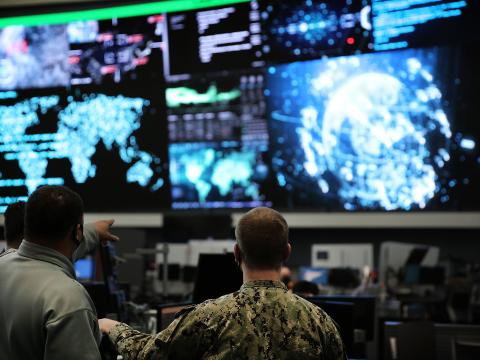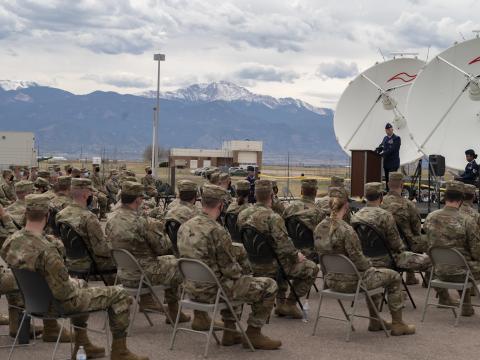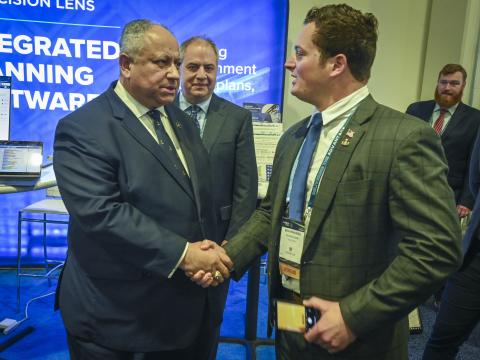FCC Seeks to Measure Impact of VoIP Outages
The federal agency responsible for oversight of the nation’s telecommunications is trying to adapt to changing technologies.
The Federal Communications Commission is in the midst of a rulemaking process for Docket No. 11-82, which would extend the commission’s rules under Part 4 of the Communications Act to telecommunications networks based on voice over Internet protocol (VoIP) technology, and broadband networking services provided by Internet service providers (ISPs).
Jeff Goldthorp is associate chief for cybersecurity and communications reliability with the FCC’s Public Safety and Homeland Security Bureau. He says the primary goal is to make sure his agency has the regulatory tools available to track problems with increasingly popular VoIP and ISP-provided telephone systems, and determine the effect of those outages on critical consumer services like the 9-1-1 emergency telephone systems.
“We have a set of rules on the books right now,” he explains, “that require providers of traditional communications services, traditional wireline voice services, and cellular services, network service providers of various kinds, to provide outage reports to us when they have an outage on their networks that exceeds a certain threshold.”
Current FCC outage reporting rules have been on the books since 1993, and were revised approximately 11 years later.
Goldthorp says that the concern is that as communications moves from older technologies like traditional landline telephones to wireless Internet-based phone systems, the FCC’s existing rules don’t allow the commission to track outages to those systems, hindering their ability to know and act on those problems if needed.
Tracking and analyzing outage reports becomes critical, Goldthorp says, when it comes to monitoring emergency services such as 9-1-1 in order to anticipate and deal with problems. In 2005, the FCC amended its rules to require interconnected VoIP services to route calls from customers to local 9-1-1 systems.
“Over the years, we’ve used that data to reveal trends in outages, whether they be for individual carriers or for segments of the industry as a whole, but trends that are statistically significant so we’re not just noticing ups and downs in trends in the data, and then approaching the communications provider or a group of them and suggesting that steps be taken to remediate the problem.”
It’s a growing challenge, Goldthorp says, because as of summer of last year, 28 percent of the 89 million residential telephone subscriptions were provided by VoIP services, up by nearly 27 percent over the same period in 2009.
Goldthorp says the information, which is mostly technical in nature, “can let us know what’s causing the problem, what could have been done to prevent the problem, and what could be done to make things better.”
That information is also used to develop voluntary, industry-wide plans to improve affected services. Goldthorp says those plans are generally effective, because service providers know that the FCC will be measuring the effect those changes have had on the system, and whether they fix the problems that were uncovered.
“We’re measuring performance,” he stresses. “We’re not measuring process; we’re measuring results.”
During the recent East Coast earthquake, many cellular telephone customers were unable to use their phones because the networks were overwhelmed. While the FCC rulemaking inquiry on VoIP/ISP outages is not designed specifically to address those problems, Goldthorp says analysis of outages for those systems could suggest interim remedies, like encouraging people to use less resource-intensive services like text messaging instead of voice calling in the event of an emergency.
The FCC has closed the initial comment phase of its inquiry into Docket 11-82, and is now in the midst of a “reply” phase, which remains open until the first week of October. In addition, interested members of the public and industry can get more information about the proposed rules under Docket 11-82 during ex-parte meetings at the FCC, during which participants are also allowed to enter comments into the docket hearing record.
In addition, Goldthorp says that the commission recently held a workshop on Docket 11-82, including panel discussions with industry representatives to explore the possible impact of the proposed rules on outage reporting by VoIP and broadband ISPs.



